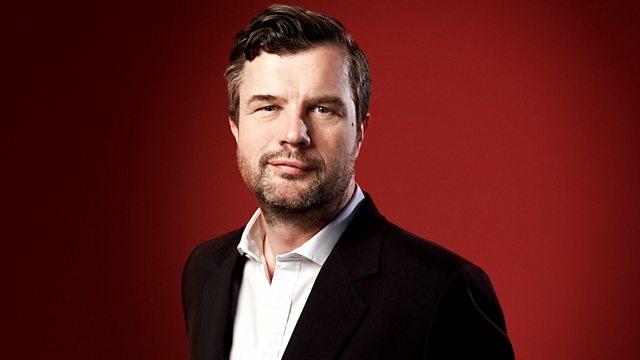Andrzej Panufnik, Christopher Hogwood Tribute
Petroc Trelawny pays tribute to the harpsichordist and conductor Christopher Hogwood who died this week and marks the centenary of the Polish composer Andrzej Panufnik.
Last on
Clips
-
![]()
Andrzej Panufnik
Duration: 26:08
-
![]()
TRIBUTE TO CHRISTOPHER HOGWOOD 1941-2014
Duration: 17:13
CHRISTOPHER HOGWOOD 1941-2014

The conductor, keyboard player and musicologist Christopher Hogwood died on Wednesday of this week. Once described as "the von Karajan of early music", he was universally acknowledged as one of the most influential exponents of the historically informed performance movement for his pioneering work with both the Early Music Consort and the Academy of Ancient Music, which he founded in 1973.Ěý As a scholar at Cambridge he wrote books on Handel and edited scores of different composers ranging from John Dowland to Mendelssohn. He was equally passionate about music of the 19th and 20th centuries: with a particular focus on the Early Romantics and the neo-classical school - MartinĹŻ, Stravinsky, Britten, Copland, Tippett and Honegger. He also worked with some of the leading symphony orchestras and opera houses in the world, including the Basel Chamber Orchestra and the Czech Philharmonic Orchestra. Petroc Trelawny looks back on Christopher Hogwood’s career with the countertenor James Bowman, the harpsichordist and musicologist Davitt Moroney and Martin Zeller, co-principal cellist of the Basel Chamber Orchestra. We also hear from Hogwood himself in archive interviews.
More information:
Ěý
ANDRZEJ PANUFNIK 1914-1991

Born in Warsaw a hundred years ago this week, Andrzej Panufnik was one of the most original symphonic composers of the second half of the 20th century. In Nazi-occupied Poland, with public concerts banned, he arranged a massive amount of classical music for two pianos which he played as a duo in “artistic cafés” with his friend and contemporary Witold Lutosławski, at great personal risk. He also conducted illegal concerts and composed patriotic resistance songs. As a composer he won international admiration and honours in his own country establishing him as a leading figure of the Polish avant-garde. After the war, with the imposition of Soviet Socialist Realism, Panufnik’s situation changed drastically and in 1954 he made a dramatic escape from Poland as a protest against Communist control over creative artists. This resulted in total censorship of his name and his music in the country for 23 years. He settled in England and from 1957 to 1959 he served as Chief Conductor of the City of Birmingham Symphony Orchestra, his last official position before deciding to dedicate his life entirely to composition. He took British nationality in 1961.
Ěý
Petroc explores the life and music of Andrzej Panufnik with archive material of the composer himself, as well as contributions from his widow, Lady Camilla Panufnik, the Polish Music expert Adrian Thomas, and a number of Polish musicians from different generations, including conductor Antoni Wit, pianist Ewa Poblocka and violinist Szymon Krzeszowiec of the Silesian String Quartet.
More information:
Ěý
Credit
| Role | Contributor |
|---|---|
| Presenter | Petroc Trelawny |
Broadcast
- Sat 27 Sep 2014 12:15±«Óătv Radio 3
Knock on wood – six stunning wooden concert halls around the world
Steel and concrete can't beat good old wood to produce the best sounds for music.
The evolution of video game music
Tom Service traces the rise of an exciting new genre, from bleeps to responsive scores.
Why music can literally make us lose track of time
Try our psychoacoustic experiment to see how tempo can affect your timekeeping abilities.
Podcast
-
![]()
Music Matters
The stories that matter, the people that matter, the music that matters






